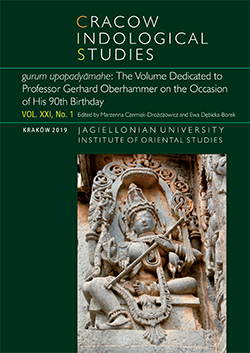Innovation in Indian Philosophy in Context
Innovation in Indian Philosophy in Context
Author(s): Johannes BronkhorstSubject(s): Cultural history, Social Philosophy
Published by: KSIĘGARNIA AKADEMICKA Sp. z o.o.
Keywords: innovation; Indian philosophy; Raghunātha; Navadvīpa; satkāryavāda; Kathāvatthu; recursive argument method
Summary/Abstract: This article draws attention to the fact, often overlooked, that innovation is not foreign to the history of Indian philosophy. Three such episodes are briefly discussed (in reverse chronological order): (1) the innovations introduced by Raghunātha and his followers in the Nyāya school of thought (ca. 1500 CE); (2) the innovations that gave rise to satkāryavāda, pariṇāmavāda, śūnyavāda, anekāntavāda and other philosophical positions (early centuries CE); (3) the innovations responsible for the first manifestations of rational philosophy in India (ca. second century BCE). Raghunātha’s innovations are most instructive in that a great deal is known about his politico- cultural surroundings. Lessons drawn from these help us to understand the beginnings of Indian rational philosophy better.
Journal: Cracow Indological Studies
- Issue Year: 21/2019
- Issue No: 1
- Page Range: 25-40
- Page Count: 16
- Language: English

